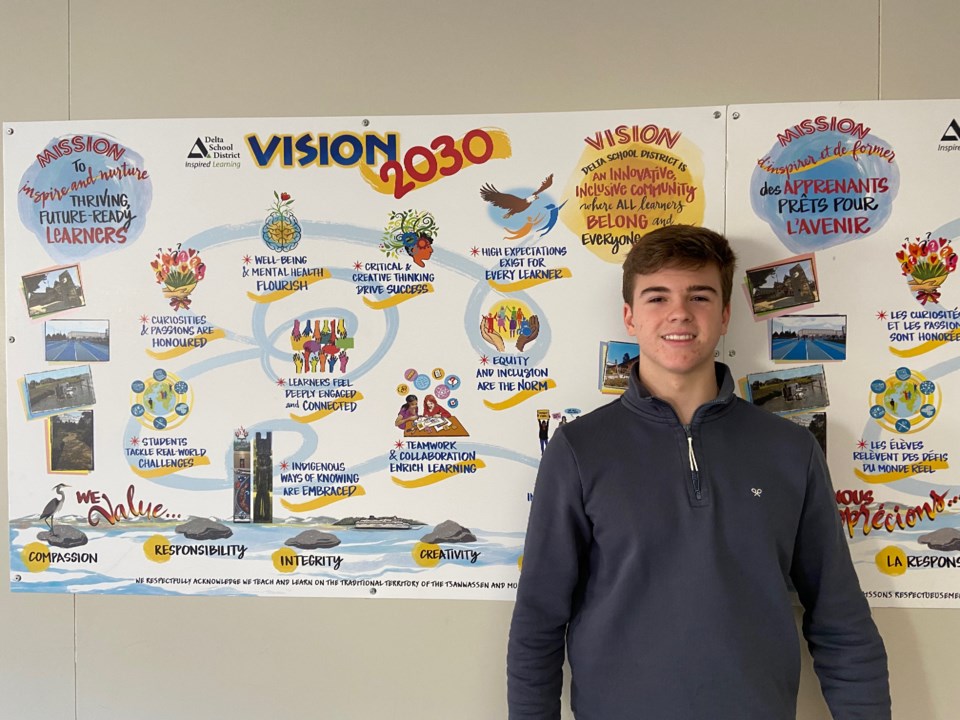Grade 11 South Delta Secondary student Luis de la Haza is working on an impressive science project aimed at addressing climate change.
“Carbon dioxide is the major contributor to climate change. however, we can change this by using particular saltwater organisms (cyanobacteria) that excel in absorbing carbon dioxide through photosynthesis,” he said. “The Synech Project involves designing equipment that will provide the optimal conditions to grow these organisms in a way that the carbon dioxide levels that they can absorb are exponentially increased. If successful, I envisage this equipment being a game-changer for tackling climate change as it would be a scalable and affordable solution applicable across the world.”
His project is based on a scientific thesis developed by a chemical engineer in 2008; however, he believes the results of the original study could be significantly improved. Consequently, he is keen to prove that this technology can provide a legitimate solution to the excessive levels of greenhouse gases in the atmosphere.
After two years, he has completed his initial research and is ready to start building pioneering equipment at the school that will be able to collect carbon dioxide and release oxygen, generating biomass that can be used for other purposes such as biofuels or bioplastics. To be able to take the next step, de la Haza is currently looking for ways to fund the equipment, estimated at approximately $5,000. He anticipates it will take around a month to build the equipment followed by a month of testing before embarking on a rigorous experiment to measure carbon dioxide absorption and how different conditions affect the organisms.
“My goal is to create the equipment that results in the first carbon-negative person – meaning that the set of organisms will absorb more carbon dioxide than one person pollutes on average in a day,” he adds. “I also want to influence and inspire other people around me – students, teachers, and the local community with this project - creating an opportunity to put SDSS and Tsawwassen on the map as the place where cutting-edge research on climate change is happening.”
He has been studying in Delta as an international student since September 2022. He has a background of being an inventor and participating in UN climate science fairs since he was 12 years old in his home country of Spain. Unable to gain the support in Spain that SDSS can offer here, he has extended his exchange in Canada so that he can work on his project and graduate from SDSS next year.



